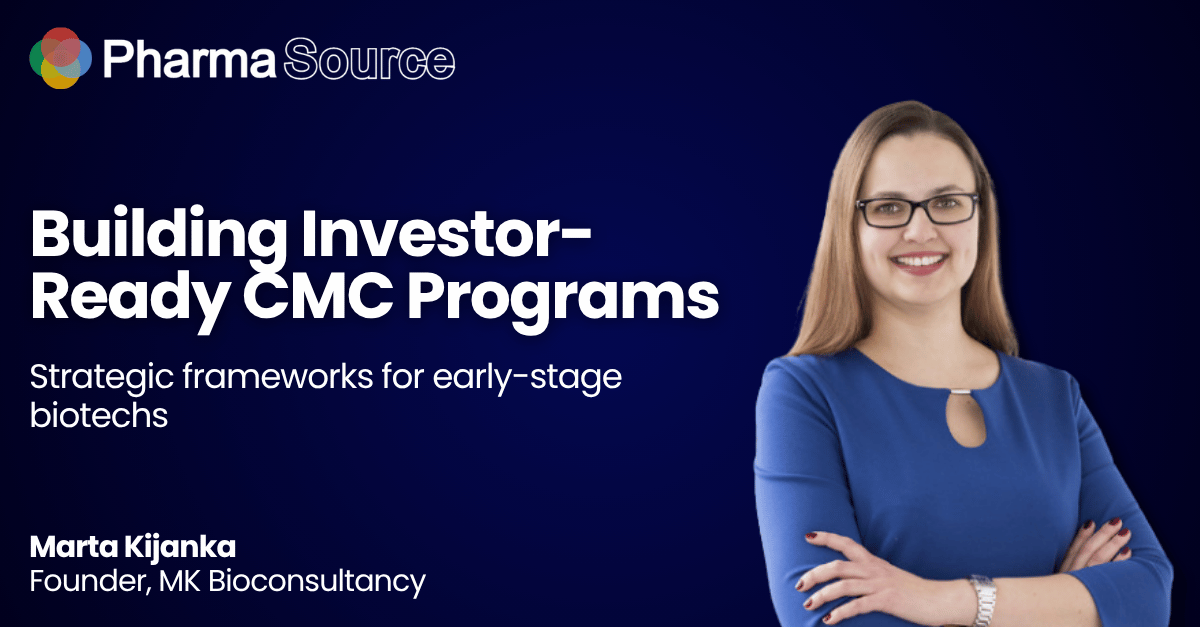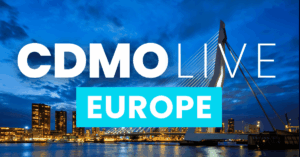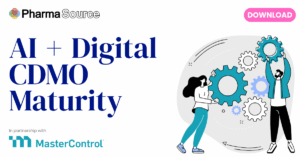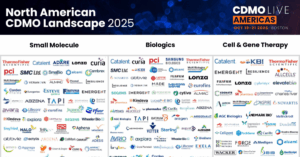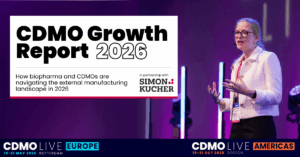“CDMOs are partners with deep, extensive technical expertise that can be leveraged strategically—not just a restaurant where you pick from a menu.”
Marta Kijanka, founder of MK Bioconsultancy, is a strategic project manager and CMC consultant who guides early-stage biotech companies through the complexities of manufacturing development, from discovery through regulatory readiness. With her career spanning academia, biotech leadership, CDMO operations, and now strategic consulting, Marta brings a 360-degree perspective to one of the industry’s most critical partnerships.
In the latest PharmaSource podcast episode, Marta explains why successful CMC programs require more than technical competence. She shares frameworks for building productive CDMO partnerships, avoiding common analytical bottlenecks, and creating alignment between scientific, operational, and business teams. Her insights are particularly valuable for companies preparing for Phase 1 and Phase 2 trials, where CMC planning directly impacts investor confidence and valuation.
The Three Pillars of Successful CMC Programs
Marta identifies three fundamental principles that separate successful CMC initiatives from those that struggle: clarity, rigor, and alignment.
“Successful CMC programs have a very clear development plan with well-defined milestones,” Marta explains. “Rigorous risk management must be built in from the get-go—not later along the way when we feel we might need it in the future.”
Alignment is equally important. “Leaders really need to prioritize that your team is aligned, that everyone shares the same vision and has the same understanding of the milestones that need to be achieved,” she emphasizes. This cross-functional cohesion between scientific teams, operations, and business development determines whether companies can execute efficiently or waste resources resolving internal conflicts.
Marta stresses that these principles aren’t theoretical frameworks but practical necessities. Without them, companies compress timelines, increase stress on teams, and sometimes compromise on manufacturing partners—outcomes that can derail development programs entirely.
Start CDMO Engagement Much Earlier Than You Think
One of the most damaging misconceptions in biotech, according to Marta, is waiting too long to engage with contract development and manufacturing organizations.
“Biotechs should start engaging with CDMOs much earlier than they usually assume, and not just when the candidate is fully defined, but early on,” Marta advises. “The intention should be building the relationship with the CDMO and fully understanding the technical capabilities they can offer.”
She recommends facility tours and team meetings to establish trust before formal commitments become necessary. The challenge, she acknowledges, is that biotechs often lack full funding or haven’t completely defined their candidate molecule at these early stages.
“If they are transparent, if they approach the CDMO with a clear story—’We are under development, this is where we are standing now, our plan is to have by X and Y achieved by this and that’—they can start to plan collaboratively and without surprises,” Marta explains.
Early engagement creates strategic advantages. “Through this open communication, through that time that allows building trust between the two teams, they can position themselves to actually move fast when the timing’s right and when the funding’s in place,” she notes.
The consequences of delayed engagement are severe: compressed preparation timelines, rushed technology transfers, increased stress on both teams, and potentially being forced to compromise on preferred manufacturing partners. “The sooner the better,” Marta concludes.
Transparency Prevents Most CDMO Risks
Marta challenges biotechs to reconsider what constitutes risk in CDMO partnerships. The greatest danger isn’t technical complexity—it’s inadequate communication.
“The risk is when you don’t share whether your molecule comes with certain constraints, which you know as the developer,” Marta warns. She cites aggregation-prone molecules as an example: “If it’s prone to aggregation and you go to your drug product manufacturer and you don’t share that information with them, you just assume they know—first point, don’t assume.”
Without transparent disclosure, CDMOs proceed with standard approaches that may prove unsuitable. “You will only find out about problems at the moment that they are actually manufacturing, whereas you could have prevented that upfront,” she explains.
Marta firmly believes that transparency unlocks value: “If you transparently share what you know about your molecule with the CDMO, given their technical expertise, they will be able to guide you to the best possible process you can develop for that molecule.”
She urges biotechs to overcome reluctance about sharing challenges: “Even if you have issues, especially if you know there are issues with your molecule or with the formulation, share it because maybe they already know the solution. Maybe they’ve seen that before.”
This principle applies equally to CDMOs when issues arise during manufacturing. “When the CDMO reports the issue, the sooner they do that, the better. They should do it on their own initiative and not wait for the customer to find it out later during the batch record review because that can ruin the CDMO’s reputation,” Marta states.
She advises CDMOs to come prepared when disclosing problems: “Discuss with your internal team, with your SMEs: Why did it occur? How did it occur? Could we have prevented that? What will we do in the future so that it won’t happen again? Only when you have all your facts well organized should you get into that discussion with the customer.”
Analytics: The Overlooked Bottleneck
Analytical methods consistently become bottlenecks in CMC programs, according to Marta, because teams underestimate their importance until it’s too late.
“With the whole heat and complexity of the manufacturing process, analytics very often tends to be left somewhat on the side with the mindset of ‘we are going to deal with that later,'” Marta observes. Teams assume they can cobble together methods from earlier research stages.
But when manufacturing begins, robust analytics become critical. “Suddenly, you find yourself in manufacturing. You need to set specifications and decide how to release your drug substance or product. At that point, it’s critical to have analytics that are robust, reproducible, and trustworthy,” she explains.
Her solution is stage-appropriate development: “Develop your analytics stage appropriately. You don’t need all your methods fully validated from the get-go. Take a critical look at which stage your drug is at, what you really must have, and what you can develop down the road.”
This pragmatic approach prevents both over-investment in premature validation and under-preparedness when manufacturing timelines arrive.
Avoiding Over-Engineering: Value vs. Complexity
Marta draws a critical distinction between necessary complexity and expensive over-engineering in manufacturing processes.
“Necessary complexity solves a real problem—like product stability, scalability, or regulatory compliance. Those are real things you need to address. You can’t decide, ‘well, we’ll do it later.’ No, you need to do it now,” she explains.
Over-engineering, by contrast, “adds cost, adds time, uses resources, and doesn’t add any tangible benefit.”
Her diagnostic question is disarmingly simple: “Does this step truly add value, or are we adding steps simply because we can?”
This discipline prevents scope creep and resource waste, keeping development timelines and budgets manageable while ensuring genuine technical requirements receive proper attention.
The CMC Bootcamp: Bridging the Experience Gap
Marta’s upcoming CMC Bootcamp at CDMO Live Europe 2026 addresses a critical industry gap: early and mid-stage biotechs entering clinical development without practical experience of CMC challenges.
“There are a lot of biotech companies entering clinical development without a practical understanding of the CMC challenges. This leads to delays, cost overruns, excessive stress, and failed transfers. No one wants that,” she states.
The bootcamp targets project managers, operational leaders, and CMC leads at companies navigating CMC development for the first time, particularly those preparing for Phase 1 and Phase 2 trials.
Topics include designing scalable processes, analytical method development timing, technology transfer best practices, outsourcing strategies, and risk management across the CMC lifecycle.
What distinguishes the bootcamp is its storytelling element. “We’re going to have a panel of very seasoned CMC leaders who will share their experience—not just the beautiful, but also the ugly. The risks they took, the risks they would never take again because they had a bad experience,” Marta explains.
Alongside experienced leaders, younger companies will share current struggles and what keeps them awake at night. This exchange creates practical learning opportunities that help biotechs build credibility with investors through robust CMC planning.
“That’s one of the events you simply can’t miss next year,” Marta concludes.

